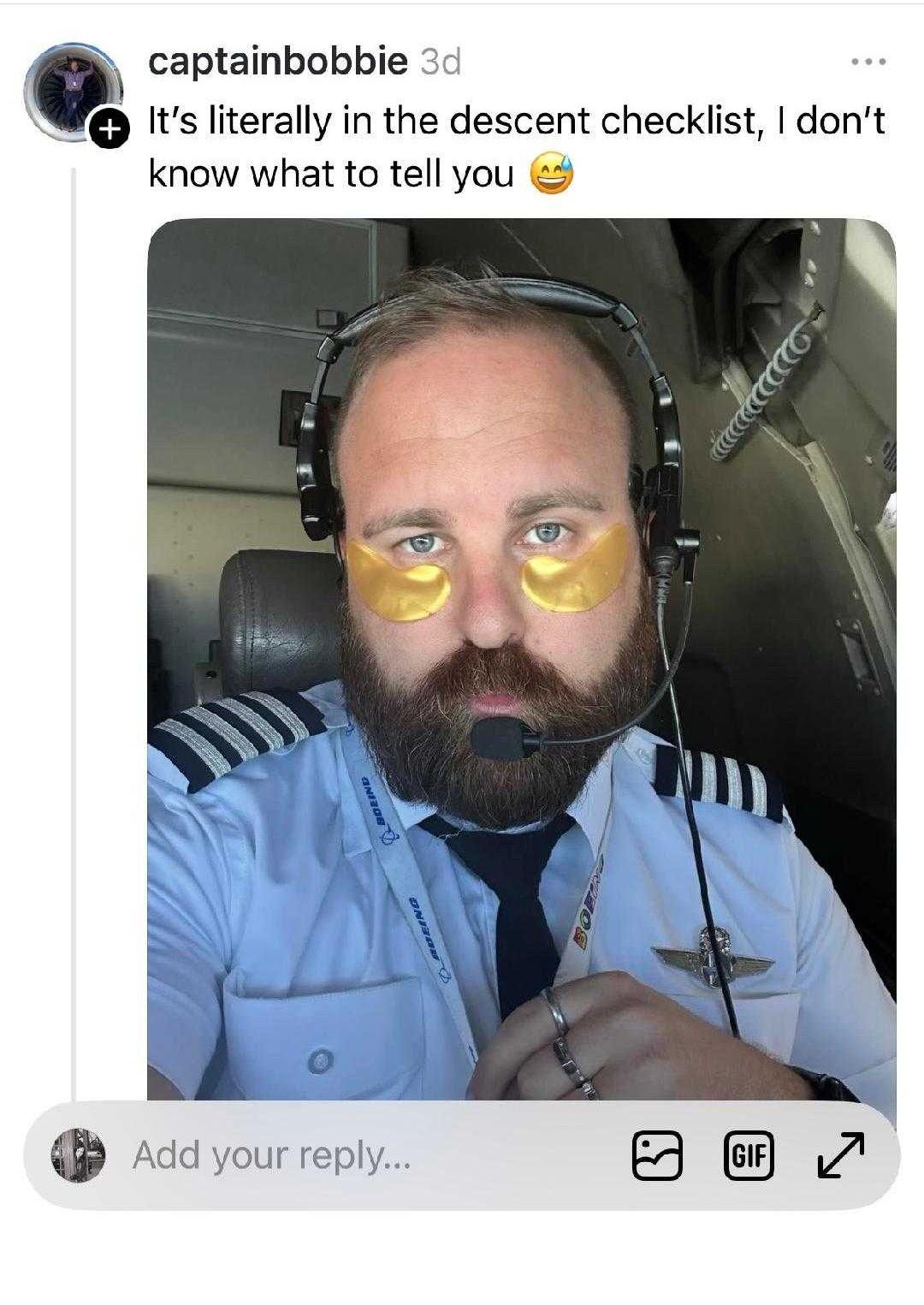Pilot has the perfect response to question about airline passengers wearing collagen face masks
"Set flaps to MOISTURIZED"
An airline pilot shows off his collagen mask.
There was a time, nearly a century ago, when people took airplane etiquette very seriously. Hats, gloves, and dresses for the ladies and a nice tie for the guys. Over the decades, some travelers have gotten a bit sloppier. And others even use the flight hours to perfect their beauty routines, no matter how strange it might seem to the airline crew.
Which brings us to a query. A woman named Heather Poole (@heatherpoole), self-described author and flight attendant, took to social media to ask a question many frequent flyers might be asking. "Thoughts on passengers wearing collagen face masks on planes?"

The masks she's referring to are the gooey liquid strips that some use under their eyes or on their whole face. They can appear white, gold, silver, and even see-through, not unlike something one might see in a horror flick.
But what are they exactly? Marie Lodie explains in Allure Magazine that as we age, our body loses collagen. And while these popular face masks can't bring it back, they can nourish just enough to give a healthy glow. She quotes Alicia Yoon, founder of Peach & Lily, who says, “In general, they are typically formulated to visibly hydrate, smooth, firm, and deliver radiant skin."
Who wouldn't want radiant skin upon landing? Poole's question received over 1.2 thousand comments on Threads alone, in just two days. But one comment stood out right away. A pilot, known online as Captain Bobbie, posted a photo with his under-eye collagen strips, writing, "It's literally in the descent checklist. I don't know what to tell you."

The captain, whose bio in part on Threads reads, "Pilot. Yogi. Brash with class. Professional vagabond. Queer," was kind enough to answer a few questions for Upworthy. Flying since he was 16, he shared, "Yes! I use the sheet masks, especially on long-haul flights. My dear friend and fellow pilot taught me her ways when we went to Japan together many years ago." He also adds, "Outside of the flight deck, I enjoy traveling, yoga, cold plunging, and petting dogs."
His picture/comment on the post has received over 90,000 likes and thousands of comments from people who seemed downright delighted. "Set flaps to MOISTURIZED," exclaimed one. Another writes, "We are landing this plane HYDRATED. They teach that in flight school." And one discusses the importance of a gorgeous landing. "Gotta look hot for your post-flight strut through the airport."
Some wondered about the logistics of it. "My only question is—when do you prep your skin for it?! I need to put a sheet mask on a fresh face, and I’m at least wearing sunscreen on my way to the airport. Can’t imagine washing my face in the plane bathroom?"
Another flight attendant wrote, "We don’t mind what you wear—masks, pyjamas, unicorn slippers. If it helps you survive dry cabin air and a red-eye, crack on. Just maybe don’t stare into my soul during the safety demo."
A friend who works for a major airline agreed with the pilot and many in the comments, due to the dry air. "Only the 787 has humidified air in the cabin, so your skin can get very dehydrated on all other planes. A lot of passengers do it for transcontinental flights, 5–7 hour flights."

